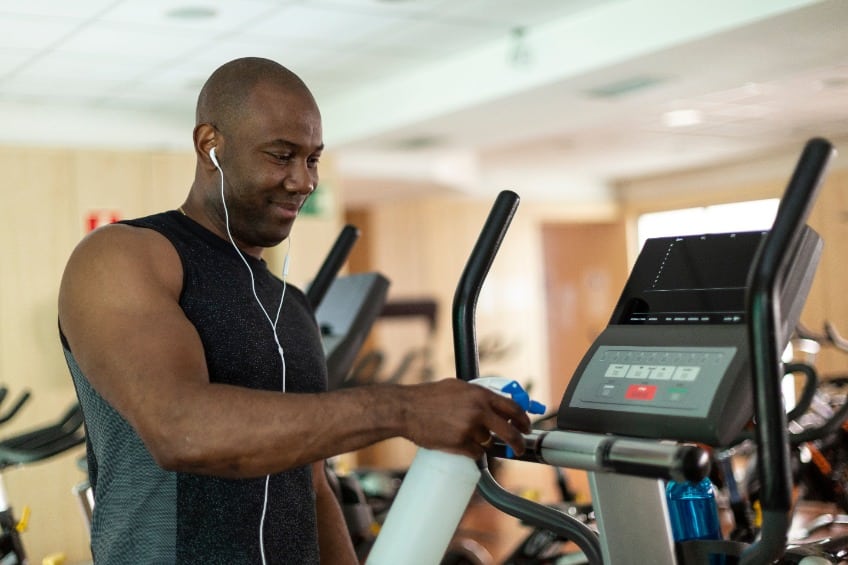By John Salak –
It has never been a good idea to touch your face, as dirty fingers can promote acne through the spread of bacteria. Now in the age of the coronavirus, fingering your face can be downright deadly because it risks transferring this deadly virus from a multitude of surfaces into our systems as people make inadvertent contact with their eyes, noses and mouths.
Identifying the risk is the easy part. Stopping—or at least slowing down—obsessive face touching, which involves almost everyone, is the real problem. And it’s a historic problem, even among those who should know better.
The Santa Clara Public Health underscored the point in early March when it posted an article on Facebook showing various legislators and health officials violating their own no-face-touching advice almost immediately after they issued it.
The University of New South Wales in Australia also showed the problem is long-standing, noting a decade ago that a study of more than two dozen medical students found they touched their faces an average of 23 times an hour and risked injecting germs into their systems.
Obviously, constantly and vigorously washing your hands helps prevent the transfer of germs. But it is far from a perfect solution, according to Connie Steed, president of the Association for Professionals in Infection Control and Epidemiology. “You can clean your hands all day, but as soon as you start touching things again … the germs on your hands increase,” she recently told USAtoday.com.
The ultimate solution to slowing down face touching is difficult and likely to incorporate raising self-awareness, identifying triggers and embracing blocks and alternatives.
Here is a collection of tools and suggestions to help promote a hands-off lifestyle to stay healthy and safe.
Awareness Is Critical. It is extremely difficult to stop touching your face if you’re not aware of how often and why you’re doing it. Creating a physical record of touching is one way to help. The process involves writing down when and why it happened such as adjusting glasses, scratching an itch, getting bored and resting head in hands, bit fingernails, etc.
Enlist Preventative Blocks. With awareness at hand, it is easier to set blocks or competing responses. These actions could include clenching your fists, pressing down on your thighs, stretching your arms or simply getting up and moving when the urge to put fingers to face emerges, according to reports from the US National Library of Medicine and ScienceDirect.com.
Busy Hands Help. Another way to block face touching is to keep hands filled and occupied. Marketwatch.com suggests squeezing stress balls, having fidgets handy or even just holding a pen can help drive back urges.
Common Sense Counts. Don’t forget the basic reasons for face-fingering. If you’re constantly touching your face to adjust slipping eyewear, pushing hair out of your way, biting your nails or reacting to allergies, then get straps for your glasses, a tie for your hair, a file for your nails and antihistamines for your allergies.
Glasses & Masks. Masks generally do little to prevent the average person from contracting the coronavirus in public. However, Dr. Justin Ko, a clinical associate professor of dermatology at Stanford Health, told The New York Times that basic masks can act as physical barriers that help prevent people from touching their faces while at home. Switching from contact lenses to glasses may also stop people from rubbing their eyes.
Don’t Forget Tissues. It’s unlikely that face-touching will come to a stretching halt under any circumstances. That’s an excellent reason to keep tissues at hand. Using tissues ultimately are more hygienic than bare fingers.
Panic Doesn’t Help. No matter how obsessive a face-touching problem is, panicking over it won’t help. Neither will simply repeating to yourself not to touch your face, according to Dr. Gail Saltz, an associate professor of psychiatry at New York-Presbyterian Hospital’s Weill-Cornell School of Medicine. Instead, Dr. Saltz recommends staying calm, being aware and practicing competitive behaviors.












